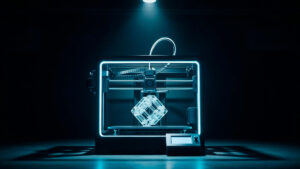While the steel industry comes to terms with Tata Steel’s decision to quit the UK, it’s a stark reminder of the fragility of jobs particularly in traditional industries.
Add steelmaker to coal miner, milkman, and switchboard operator.
“Change has always been rooted in technology and shifting global economies, and we are now on the verge of a new revolution…”
Change has always been rooted in technology and shifting global economies, and we are now on the verge of a new revolution.
Like most other revolutions before it, the proliferation of connected sensors on everything from televisions to turbines will create further change to jobs, increasing redundancies but also creating new roles and skills.
This internet of things (IoT) is not short on publicity and with good reason.
The numbers are somewhat mind blowing.
Research analyst Gartner has claimed that 6.4 billion connected things will be in use this year, an increase of 30 per cent from 2015.
The consumer market will account for the biggest growth although general and vertical industry use is also increasing.
A recent study by the Economist Intelligence Unit on the rise and impact of the smart product economy found that 40 per cent of businesses plan to use smart products to automate customer service operations, while 46 per cent report that smart products are already bringing them information about their customers that was previously not possible or not cost effective to acquire.
From Cisco’s digital ceiling to Future Shape’s smart carpet, everything everywhere is a target for connectivity.
Companies have good reason to want everything connected.
Diagnostics through data analytics is big business, whether it’s pre-determining the life span of products and proactively triggering upgrade cycles or understanding how products are used better to improve new products in the hope they will continue to sell, data will become the backbone of the modern economy.
Think about it for a minute.
If companies know for certain the condition of a particular product, how would that impact the sales and service cycles?
“The growth in connected devices will certainly change the working pattern. While the IoT will not remove the need for field service personnel it will demand different skills…”
Imagine knowing which part is about to fail and organising that part for the customer to avoid any downtime?
This would also improve the accuracy of the upgrade sales cycle, and also for that matter, what would the data be worth to insurance companies, especially in the areas of security and health?
By having a direct, always-on connection to customers’ products it is possible to see how this will change a few things for field service.
As keepers of that diagnostic data it puts service departments in a strong position, as long as they can retain control of that data through expert analysis combined with product knowledge.
This is where field service needs to re-invent itself or at least evolve.
The growth in connected devices will certainly change the working pattern. While the IoT will not remove the need for field service personnel it will demand different skills.
With more insight into customer products and the potential for remote analysis through virtual mapping and even drones, it’s possible to see how this change will materialise – more onscreen work, more data analytics, more up-selling and more recommendations for future product design.
Throw in the potential for localised robots to carry out low level maintenance tasks and suddenly field service in the future looks very different.
It’s not something to be feared, but rather embraced.
This is an opportunity for field service to be at the centre of the relationship between company and customer, the driving force for product innovation and the keepers of the keys to the new industrial revolution.
And that may mean a name change too.
Smart product analytical service, sales and innovation support agent anyone?











